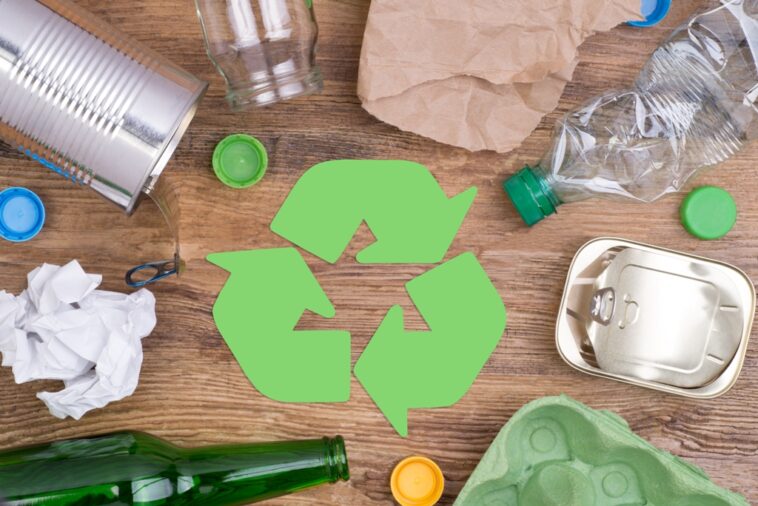Did you know that one recycled tin can saves enough energy to power a TV for three hours? Or that thrifting for a shirt instead of buying one new can save more than 700 gallons of water? If not, don’t worry: Nov. 15, 2020 is National Recycling Day – a time to raise awareness about our environmental footprint and bring attention to the many benefits of recycling.
At the most basic level, recycling reduces the amount of total waste in our environment. Although you can’t usually make a 100% recycled product (some amount of new material must be added), using a portion of old material can still reduce energy, water and resources.
Not all items can be recycled, but there are ways to reduce your single-use waste – recyclable or otherwise. Here are just a few:
Reduce
Adopt a “carry in, carry out” perspective: Take what you need with you – like bringing lunch and utensils to work or carrying a reusable bag to the grocery store. Think before you buy highly packaged convenience foods and single-use plastics.
Compost
From potato peels and apple cores to coffee grounds, eggshells and even pizza boxes, a surprising amount of waste is compostable. If you can set up a compost bin or if you have a community program nearby, give composting a try – you could reduce your household waste by half, while also helping to reduce carbon dioxide emissions from landfills.
Thrift
Textile mills are among the biggest polluters on the planet – and the average person goes through more than 80 pounds of clothing and fabric in a year. Thrifting can help to offset that waste – and save you money at the same time. Next time you visit your local Goodwill (or other thrift store), you can also find household goods, furniture, toys, craft supplies and even holiday décor – all with a next-to-nil impact on the environment. In 2019, local Goodwills diverted four billion pounds of usable goods from landfills.
Donate
When you clear out your closets, don’t toss out that board game, those too-small shoes or that stack of DVDs. Instead, set up a donation box for items that can go to your local Goodwill: clothing, kitchen wares, linens, and even some types of furniture and electronics. Plus, 90% of the revenue from your donations will go to support nonprofit services in the community: It’s a win-win-win.
Upcycle
You can extend the lifespan of an item by finding unconventional ways to repurpose it. Use that empty glass candle jar to store hair ties or cotton swabs. Transform that worn T-shirt into a dusting cloth, cat toy or a braided rug. Give that old patio chair a new lease on life with a coat of spray paint. If you have kids, encourage them to take an active role in upcycling and repairing household items, too!
The first step toward living more sustainably is taking the time to think about the impact of everyday actions. By making small, consistent changes in your life, you can do your part to build a better community – and a greener world.
Kim Praniewicz is VP of marketing and mission advancement for Goodwill Industries of Central Florida. The nonprofit has 30 retail locations across Orange, Osceola, Seminole, Lake, Brevard and Volusia counties, including newly opened stores in Lake Nona, Viera, Lady Lake and Winter Garden.




Comments